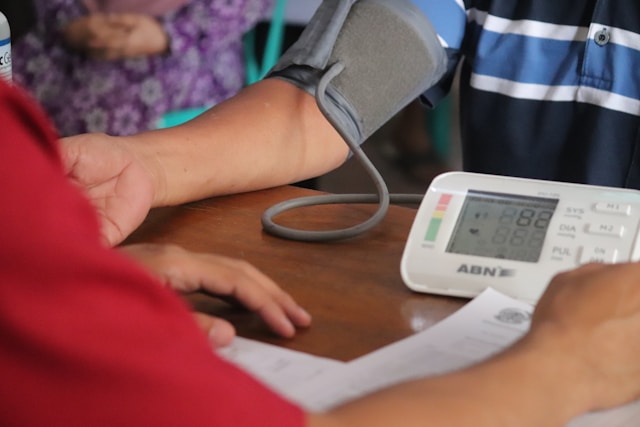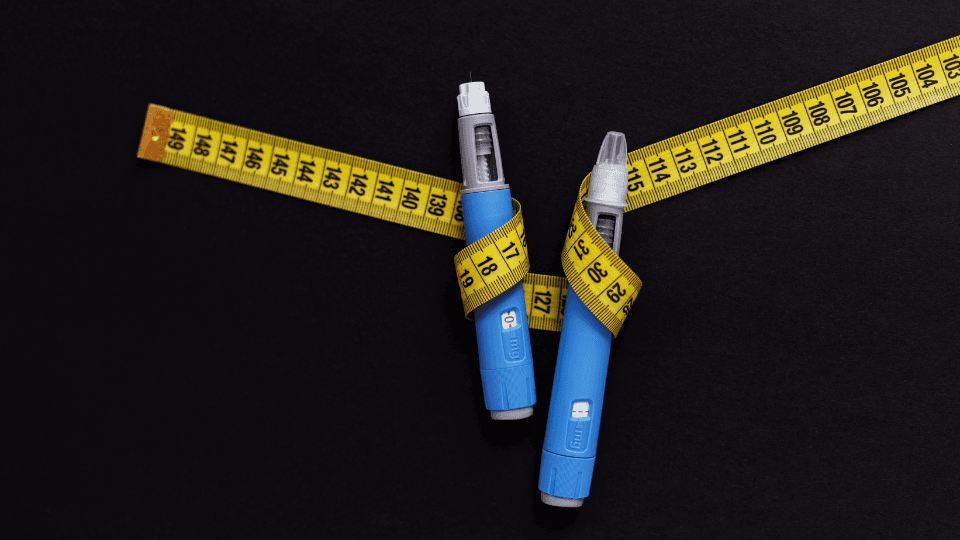Back
08 Nov 2024
Why routine medical screening matters: How to stay ahead of health risks

Dr Jarrad Van Zuydam | Sports Physician
We all want to stay healthy and live long, active lives. One of the best ways to do that is through routine medical screening. But what exactly is screening, and why is it so important? Let’s take a closer look at why medical screening should be part of your health routine, and how to know when, what, and how to get screened.
What is medical screening?
Medical screening is a way to check for diseases before they cause any symptoms. The idea is to catch health problems early, when they’re easier to treat or prevent altogether. Screening can involve different tests, like blood tests, scans, or physical exams, depending on what disease you're screening for.
Screening isn’t just for older people or those who feel sick. It’s for people who feel perfectly fine, too—because many diseases, like high blood pressure or certain cancers, don’t show symptoms in the early stages. By finding these conditions early, you can get treated sooner and lower your risk of serious health issues later.
Why is screening so important?
Many serious health conditions, like cancer, heart disease, or diabetes, develop slowly and silently. You might feel nothing until the disease is advanced and harder to treat. Screening helps catch these issues before they become severe, giving you more options for treatment and a better chance of recovery.
It’s also a way to stay in control of your health. When screening catches something early, you have time to decide about treatment, lifestyle changes, or preventive steps. It’s like getting your car checked regularly—finding and fixing minor problems before they turn into major ones.
Why don’t we screen for every disease?
You might wonder, “If screening is so important, why don’t we test for every disease in everyone?” The answer is simple: not all tests are helpful for everyone, and sometimes they can do more harm than good.
Screening tests aren’t perfect. Sometimes they can give false results—either showing that you have a disease when you don’t (false positive) or missing a disease that’s there (false negative). This can lead to unnecessary stress or even treatments you don’t need. Some screenings, like certain scans, can also involve slight risks, like radiation exposure.
That’s why doctors recommend screening based on your age, gender, family history, and risk factors. It’s most useful when it’s targeted at the right group of people, and when the benefits outweigh the risks.
Practical advice for routine screening
Here’s a general guide on when, what, and how to get screened:
For everyone:
Blood pressure check: Starting at age 18, have your blood pressure checked at least once every 2 years. High blood pressure can lead to heart disease and stroke, so catching it early is key to preventing these serious conditions.
Cholesterol screening: Starting at age 40, most adults should have their cholesterol checked every 4-6 years. If you have risk factors like obesity or a family history of heart disease, you may need to check more often.
Colon cancer screening: Both men and women aged 45 and older should get screened for colon cancer. This can be done with a stool test every year or a colonoscopy every 10 years.
HIV screening: It’s recommended that adults get tested at least once in their lifetime, with more frequent testing for those at higher risk (e.g., individuals with multiple sexual partners or those living in high-prevalence areas). Early detection of HIV allows for timely treatment, helping you live a longer, healthier life and reduce the risk of transmitting the virus.
For women:
Breast cancer screening: Women aged 50-74 should have a mammogram every 1-2 years. If you have a family history of breast cancer, you may need to start earlier.
Cervical cancer screening: Women aged 21-65 should get a Pap smear every 3 years, or every 5 years if combined with an HPV test.
Bone density test: Women aged 65 and older should get screened for osteoporosis. If you have risk factors like early menopause or a family history of osteoporosis, your doctor may recommend starting earlier.
For men:
Prostate cancer screening: Men aged 55-69 should talk to their doctor about the pros and cons of prostate screening. Not everyone needs to be screened, so it’s important to discuss your options based on your risk factors.
Abdominal aortic aneurysm screening: Men aged 65-75 who have ever smoked should get a one time ultrasound to check for an abdominal aortic aneurysm. This condition often shows no symptoms, but early detection can save lives.
Additional optional screening tests
Some people might consider additional tests based on their personal risk factors. These tests aren’t necessary for everyone, but could be helpful in certain cases:
Lung cancer screening: If you’re 50-80 and have a history of heavy smoking, talk to your doctor about a low-dose CT scan. This scan can detect lung cancer early when treatment is most effective.
Diabetes screening: If you’re overweight or have other risk factors for diabetes, such as high blood pressure or a family history, a simple blood test can check your blood sugar levels.
Mental health screening: Screening for anxiety and depression is recommended for adults and adolescents, especially those under stress or with a family history of mental health issues. Early detection through simple questionnaires can lead to effective treatment and support, reducing long-term effects on wellbeing.
Skin cancer screening: If you have a family history of skin cancer or many moles, a dermatologist can do a quick skin check to spot any unusual changes.
Coronary artery calcium (CAC) score: If you’re aged 40-75 and at intermediate risk of heart disease, a coronary calcium score can help assess your heart disease risk by measuring calcium in the arteries. This test can help determine whether preventive steps like statin therapy are needed.
Screening recommendations by country
Screening guidelines can vary depending on where you live. While the advice in this article follows global recommendations from organisations like the UK NSC Recommendations and the US Preventive Services Task Force (USPSTF), it’s important to follow your country’s guidelines.
Wherever you are, it’s always a good idea to consult your doctor about the right screening schedule for you.
The takeaway
Routine medical screening is a powerful tool to protect your health. By catching problems early, you can take steps to prevent diseases from getting worse—or even prevent them from happening at all. Be proactive and talk to your doctor about the right screening schedule for you.
So, when was your last check-up? Schedule one today and take charge of your health.











